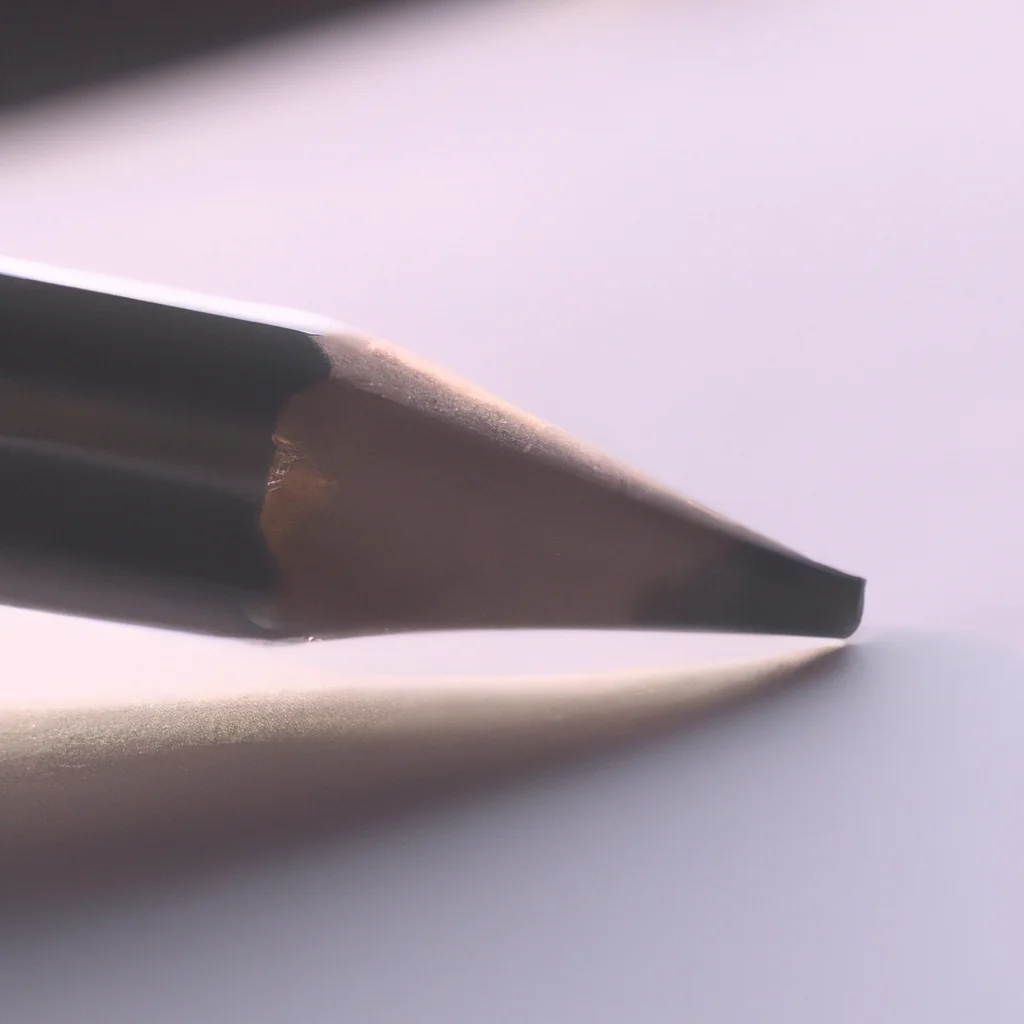How does a mechanical pencil work?


How does a mechanical pencil work?
A mechanical pencil is a writing instrument that uses a mechanism to extend and retract the pencil lead, making it a refillable pencil that does not require sharpening. The pencil lead is held in place by a pencil mechanism that is designed to dispense the lead in a controlled manner. In this article, we will explore the engineering and design of a mechanical pencil, as well as the technology and innovation that goes into creating this essential drafting tool.
Mechanical Pencil Design
A mechanical pencil is designed to hold a thin, cylindrical piece of graphite called the pencil lead. The lead is held in place by a pencil mechanism that is housed inside the barrel of the pencil. The mechanism is designed to dispense the lead in a controlled manner, allowing the user to write or draw with precision. The pencil mechanism is made up of several parts, including the lead sleeve, clutch, and advance mechanism.
The lead sleeve is a thin metal tube that surrounds the pencil lead and protects it from breaking during use. The clutch is a small mechanism that grips the pencil lead and holds it in place. The advance mechanism is used to extend the pencil lead as it is used, allowing the user to write or draw continuously without having to stop and sharpen the pencil.
Pencil Engineering
The engineering of a mechanical pencil is a complex process that requires precision and attention to detail. The pencil mechanism must be designed to dispense the lead in a controlled manner, while also being durable and reliable. The lead sleeve must be designed to protect the pencil lead from breaking, while also being thin enough to allow for precise writing or drawing.
The clutch mechanism must be designed to grip the pencil lead firmly, without damaging it, while the advance mechanism must be designed to extend the pencil lead smoothly and without jamming. The overall design of the pencil must also be ergonomic, allowing for comfortable use over extended periods of time.
Pencil Technology and Innovation
The technology and innovation that goes into creating a mechanical pencil are constantly evolving. New materials and manufacturing processes are being developed that allow for lighter, stronger, and more durable pencils. Advances in lead technology have also led to the development of new types of pencil leads, such as colored leads and leads that are resistant to breakage.
One of the most significant innovations in mechanical pencil technology is the development of automatic pencils. These pencils feature an advance mechanism that automatically extends the pencil lead as it is used, eliminating the need for the user to manually advance the lead. This technology has revolutionized the way that people write and draw, making it easier and more efficient than ever before.
Refillable Pencils
One of the biggest advantages of a mechanical pencil is that it is a refillable pencil. The pencil lead can be easily replaced by simply inserting a new lead into the pencil mechanism. This eliminates the need for sharpening and reduces waste, making mechanical pencils a more environmentally friendly option than traditional wooden pencils.
Conclusion
In conclusion, a mechanical pencil is a sophisticated writing instrument that uses technology and innovation to provide precise and efficient writing and drawing capabilities. The engineering and design of the pencil mechanism are critical to its performance, with the lead sleeve, clutch, and advance mechanism all playing important roles. Advances in technology and materials have led to the development of more advanced and efficient mechanical pencils, including automatic pencils and pencils with specialized lead types. Finally, the refillable nature of mechanical pencils makes them a more sustainable and environmentally friendly option than traditional wooden pencils.
Recent Posts
How do I create an engaging and informative online quiz or assessment?
Creating an engaging and informative online quiz or assessment can be a powerful tool for… Read More
What are the most effective methods for managing and reducing work-related stress in the hospitality industry?
Work-related stress is a common issue in the hospitality industry, where employees often face long… Read More
How can I improve my assertiveness and communication skills in a leadership position?
In a leadership position, assertiveness and effective communication skills are crucial for success. Being able… Read More
What are the key elements of a successful employee recognition and rewards program?
Employee recognition and rewards programs play a crucial role in motivating and engaging employees, as… Read More
How do I effectively manage and respond to customer feedback and reviews?
Customer feedback and online reviews play a crucial role in shaping a company's reputation and… Read More
What are the best strategies for effective time management as a stay-at-home parent?
Effective time management is crucial for stay-at-home parents who juggle multiple responsibilities on a daily… Read More